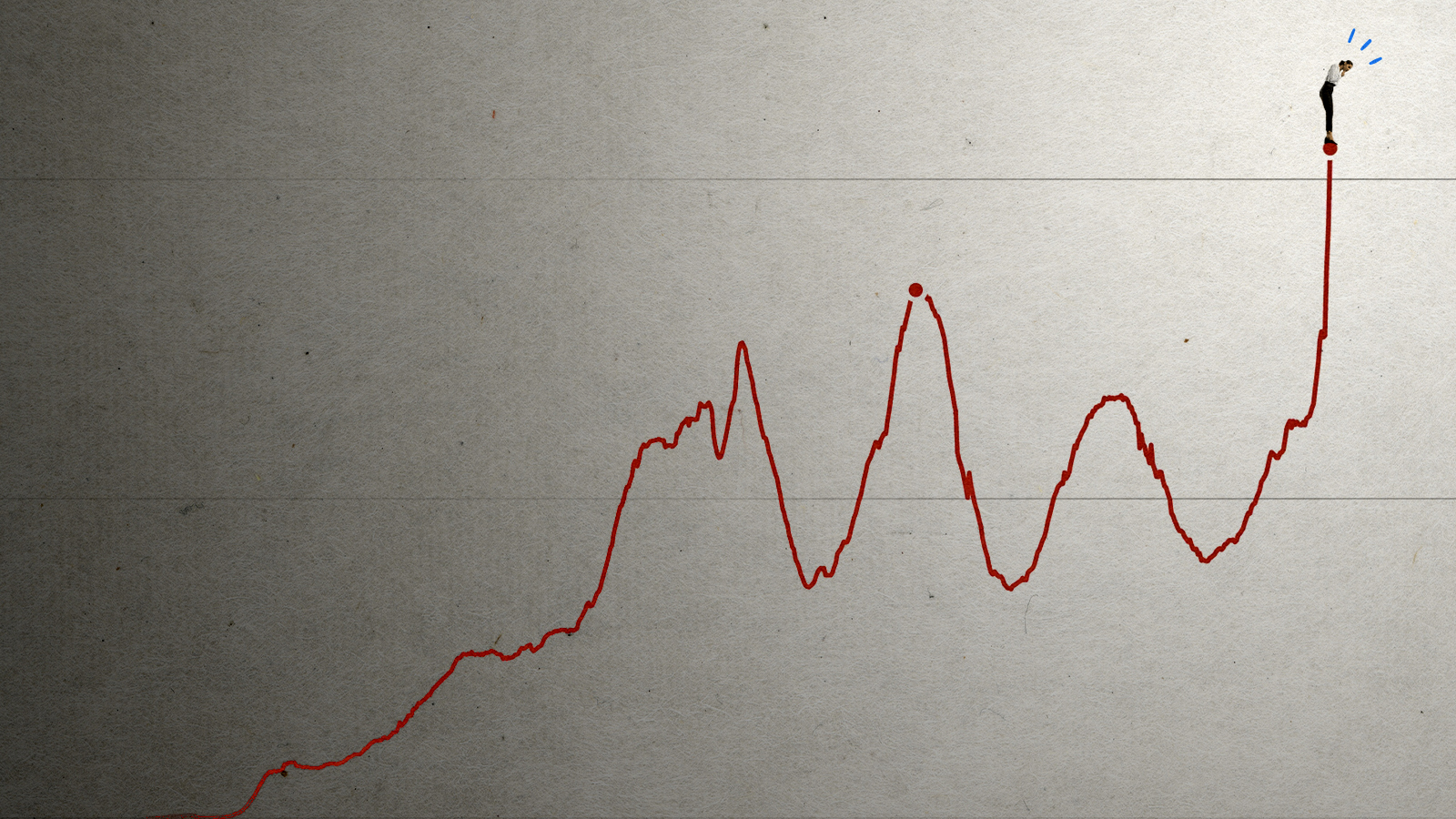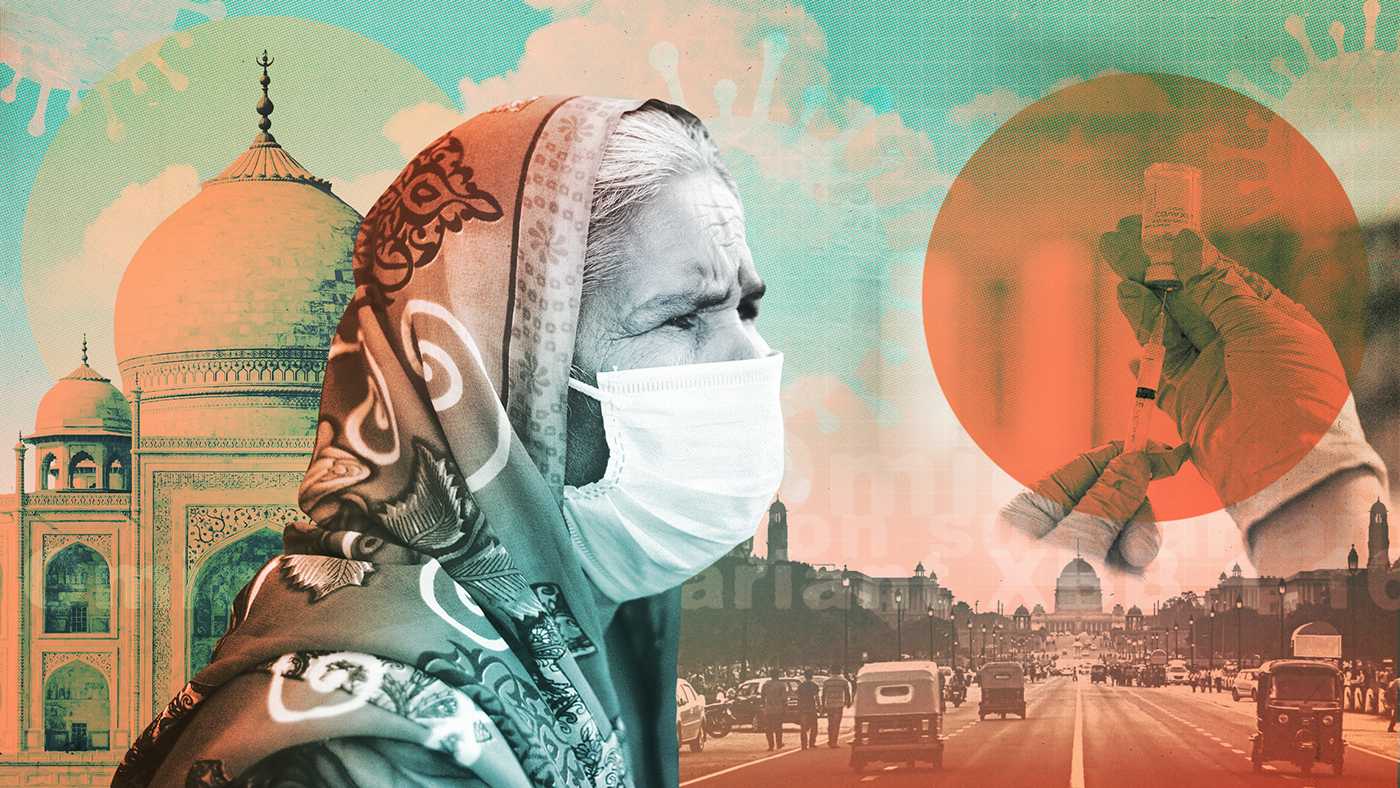Is Omicron less severe? It's complicated.


A free daily email with the biggest news stories of the day – and the best features from TheWeek.com
You are now subscribed
Your newsletter sign-up was successful
How bad is Omicron? That question is riveting scientists and policymakers as the latest coronavirus variant rampages across the world. We know for sure that it is much, much more contagious than previous variants, given how it has gotten loose in countries like Australia that previously managed to halt transmission entirely. But how about the severity of the illness it causes?
On the one hand, it is known with reasonable certainty that Omicron will cause less severe illness. A preprint study in The Lancet recently measured the first month of the Omicron wave in Gauteng province in South Africa against the same period of the Beta and Delta waves, so as to get an apples-to-apples comparison. They found that while there were vastly more cases in the Omicron wave, a far smaller share were hospitalized (4.9 percent versus 18.9 percent for Beta and 13.7 percent Delta) and of those hospitalizations, a much smaller share had severe symptoms (28.8 percent versus 60.1 percent and 66.9 percent, respectively). However, a much larger share of Omicron hospitalizations were children this time, probably because of very limited vaccination in that group.
Again, this has not been peer-reviewed yet, but it fits with reported coverage as well as South African statistics.
The Week
Escape your echo chamber. Get the facts behind the news, plus analysis from multiple perspectives.

Sign up for The Week's Free Newsletters
From our morning news briefing to a weekly Good News Newsletter, get the best of The Week delivered directly to your inbox.
From our morning news briefing to a weekly Good News Newsletter, get the best of The Week delivered directly to your inbox.
A large portion of this difference between Omicron and Delta is certainly because of widespread population immunity. The vast majority of South Africans have had a coronavirus infection already, plus about 31 percent have at least one dose of vaccine. While Omicron is often getting around natural immunity or vaccination (get boosted!), that still means milder illness in general.
But some of the difference is probably also because Omicron is inherently less severe. Several pre-print animal studies suggest that the mutations that make it so incredibly contagious and evasive to prior immunity also make it less able to infect the lungs — where the previous variants wreaked their worst havoc.
That is all to the good. But increased contagiousness can compensate for that lessened severity with sheer numbers of infections. Sure enough, across the United States, the staggeringly rapid spread of Omicron is swamping clinics and hospitals that were already reeling from two years of nearly nonstop pandemic. Burnout, post-traumatic stress disorder, and simple exhaustion have badly eroded the ranks of medical staff, and thousands of them have also caught Omicron. The remainder are dealing with yet another surge of patients — some of whom are prone to assaulting workers.
It would be a good idea to hunker down and avoid the emergency room if at all possible for about the next 6 to 8 weeks.
A free daily email with the biggest news stories of the day – and the best features from TheWeek.com
Ryan Cooper is a national correspondent at TheWeek.com. His work has appeared in the Washington Monthly, The New Republic, and the Washington Post.
-
 The 8 best TV shows of the 1960s
The 8 best TV shows of the 1960sThe standout shows of this decade take viewers from outer space to the Wild West
-
 Microdramas are booming
Microdramas are boomingUnder the radar Scroll to watch a whole movie
-
 The Olympic timekeepers keeping the Games on track
The Olympic timekeepers keeping the Games on trackUnder the Radar Swiss watchmaking giant Omega has been at the finish line of every Olympic Games for nearly 100 years
-
 Should we be worried about declining birth rates?
Should we be worried about declining birth rates?Talking Points Baby boom or bust
-
 Are men the problem with male contraception?
Are men the problem with male contraception?Talking Points Science could now offer contraceptive gels and pills for men, but questions remain over trials, and men's responsibility
-
 Should masks be here to stay?
Should masks be here to stay?Talking Points New York Governor Kathy Hochul proposed a mask ban. Here's why she wants one — and why it may not make sense.
-
 The bird flu fight is faltering
The bird flu fight is falteringTalking Points Are pandemic lessons going unheeded?
-
 OTC birth control arrives amid the battle over reproductive rights
OTC birth control arrives amid the battle over reproductive rightsTalking Points Opill will cost $19.99 a month. Democrats are pushing to make it cheaper.
-
 What Florida is — and isn't — doing to curb the biggest measles outbreak in the US
What Florida is — and isn't — doing to curb the biggest measles outbreak in the USTalking Points DeSantis appointee defies expert consensus to stop the spread
-
 Covid inquiry: the most important questions for Boris Johnson
Covid inquiry: the most important questions for Boris JohnsonTalking Point Former PM has faced weeks of heavy criticism from former colleagues at the public hearing
-
 Arcturus: the new Covid variant surging in India
Arcturus: the new Covid variant surging in Indiafeature The highly infectious Omicron subvariant has also been reported in dozens of countries including the UK
